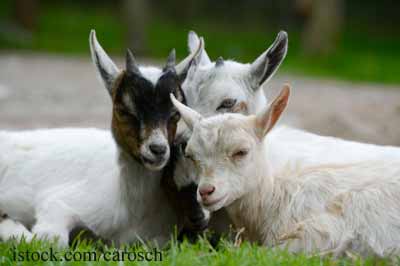The E. coli O157 outbreak linked to the Oak Leaf Dairy Farm in Lebanon, Connecticut has now grown to include 41 confirmed cases. The patients range in age from 9 months to 45 years, with a median age of five years. The patients include seven adults and 34 children under the age of 18. Twenty-two of the sick children are age five or under.
 Ten patients have been hospitalized in this outbreak. One person is still in the hospital. Three of the hospitalized children have developed hemolytic uremic syndrome (HUS), a serious complication of a shiga toxin-producing E. coli (STEC) infection that can cause kidney failure and death. Two of the three children with HUS have recovered.
Ten patients have been hospitalized in this outbreak. One person is still in the hospital. Three of the hospitalized children have developed hemolytic uremic syndrome (HUS), a serious complication of a shiga toxin-producing E. coli (STEC) infection that can cause kidney failure and death. Two of the three children with HUS have recovered.
The investigation by the Centers for Disease Control and Prevention (CDC), the Connecticut Department of Public Health, the Connecticut Department of Agriculture, is continuing and will probably last for several weeks. More visits to the farm are scheduled to try to find the source of the pathogenic bacteria.
So far there is no evidence that the milk, cheeses, caramels, lip balms, soaps, and salves sold by the dairy were the cause of this outbreak. The milk and cheese products are pasteurized, which kills pathogenic bacteria such as E. coli O157, Salmonella, and Listeria monocytogenes. Oak Leaf Dairy is closed to the public and the owners are cooperating with the investigation. Exposures happened between March 6, 2016 and March 20, 2016, with illness onset occurring between March 7 and March 24, 2016.
The outbreak was first identified on March 24, 2016 when six of seven people sickened said they had recently visited the farm and came into contact with goats there. Ruminant animals such as goats and cows can carry E. coli in their intestines but are not sickened by the bacteria because they lack the genes that trigger the illness.
If you visited Oak Leaf Dairy farm in March and have experienced the symptoms of an E. coli infection, please see your doctor. The symptoms of an E. coli O157 infection include severe abdominal cramps, nausea vomiting, a slight fever, and diarrhea that may be bloody and/or watery. This infection can progress to HUS if improperly treated with antibiotics, or if the person sickened is under the age of five.
The symptoms of HUS include little or no urine output, lethargy, a skin rash, easy bruising, bleeding from the nose and mouth, and jaundice, which is yellowing of the skin. If anyone is experiencing these symptoms they should be taken to a doctor immediately because this condition is life-threatening.
To prevent E. coli infections, always wash your hands thoroughly with soap and water after touching animals or handling their feed. Wash your hands well after going to the bathroom or changing diapers or caring for someone who is sick, especially with a diarrheal illness. Do not consume raw milk, unpasteurized cider, or raw dairy products, and do not eat undercooked ground beef products. And never prepare food or beverages for anyone else if you have diarrhea.




